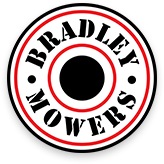If you are the manager of a lawn care crew, then you should encourage your technicians to make suggestions to customers. Your lawn care company probably offers a variety of services, and when your employees make suggestions about possible yard improvements, you can help your customers while increasing your profits. Here are a few types of problems that your lawn care technicians might notice at a residential or commercial property that can lead to additional work for your company’s employees.
Lawn Problem 1: Pests Are Damaging the Grass, Trees and Shrubs
Your lawn care crew may notice that there is a pest problem on a lawn, and if they notify the property owners, then it can lead to additional business. There are several types of insects or mammals that can infest a property’s lawns, and your customers will appreciate knowing about the problem right away to prevent additional damage.
Lawn Problem 2: Poor Soil Is Leading To Unhealthy Flowers, Trees and Grass
A lawn care technician might notice that the plants on a lawn aren’t growing properly because the property has poor soil. Your lawn care company can offer soil-sampling services to determine what types of fertilizer treatments are necessary to improve the condition of the plants. In addition, your technicians can apply the fertilizers to the property so that the condition of the lawn’s plants improves.
Lawn Problem 3: Reporting Plant Damage After a Storm Occurs
If your lawn care team notices damage after a storm occurs, then informing the customer is imperative. Your customers will want to know about falling trees or dangling branches so that it is possible to have the items removed before a building is damaged or someone is injured. Make sure to have tree trimming and removal as part of your lawn care services.
Lawn Problem 4: Noticing Plant Diseases On a Property
A knowledgeable lawn care technician might notice that a lawn's plants are infested with diseases that can destroy shrubs, grass or trees. It is less expensive for a customer to have a lawn treated with chemicals to eliminate diseases than to replace all of the plants. Make sure to inform your customers when there are treatable plant diseases on a property.
Lawn Problem 5: Problems With Chronic Soil Erosion
If your property is undergoing erosion, then the soil and plants can wash away after it rains several times. Many lawn care companies offer additional landscaping services such as building retaining walls that prevent erosion. Take photographs of a property's lawns where erosion is occurring so that you can help a customer understand the problem.
Lawn Problem 6: Lack Of Irrigation On a Lawn
When a property is in a dry region or if it is summer, then the lawn may need additional water to keep the plants healthier. A lawn care crew can offer routine water services, or they can install irrigation devices so that a property has the proper amount of moisture for growing lush plants.
